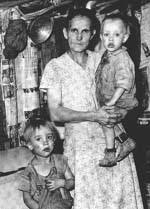|
|
|
Nutrition and Diagnosis-Related
Care
|
|
Nutritional factors
play a role in practically every disease, and especially the rate and
quality of recovery.The common
things we think of certainly apply even in affluent societies.
-
 Vulnerable
populations.
Homeless people; the aged and children, pregnancy. Vulnerable
populations.
Homeless people; the aged and children, pregnancy.
- Chronic alcoholism.
Vitamin and caloric deficiency. Liver and pancreatic disease leads to
inability to absorb fats, and by extension fat soluble vitamins.
- Acute and chronic illness.
Basal metabolic rate accelerates with many illnesses (in burn patients
it may actually double). Failure to appreciate the increased nutritional
need may compromise recovery.
- Self-imposed dietary restrictions.
Body image is preeminent for some people. Anorexia nervosa, bulimia
and other less overt eating disorders affect many people.
- Less common causes.
Malabsorption syndromes, genetic defects and drugs that may block the
uptake of a particular nutrient.
But caloric and other needs change dramatically depending on a person's
circumstances.
- An athlete in training will have a much
greater caloric need than an otherwise healthy couch potato.
- A patient with emphysema will burn
thousands of calories just breathing.
- A person recovering from a severe burn
may have twice or even three times the regular caloric need.
So
what do you do? |
|